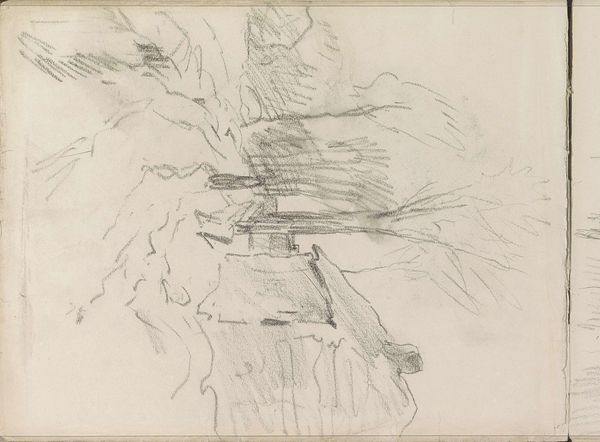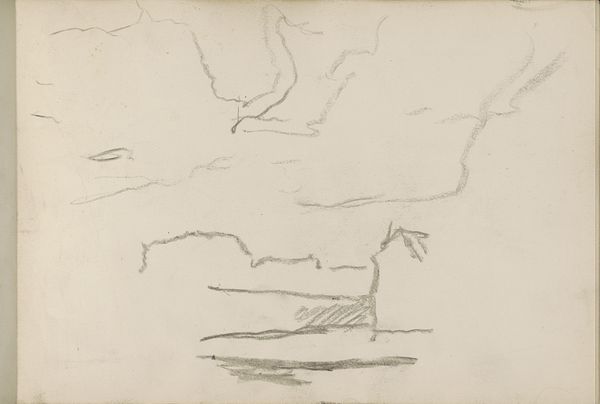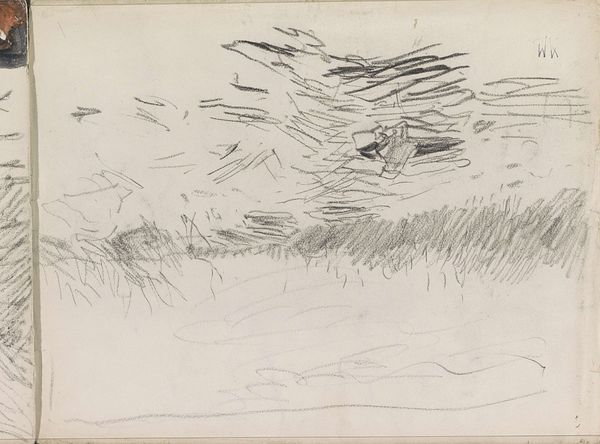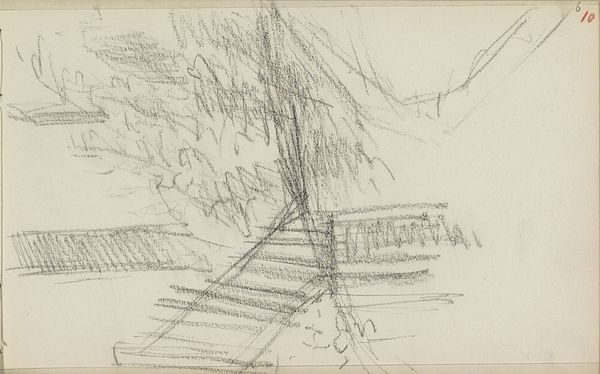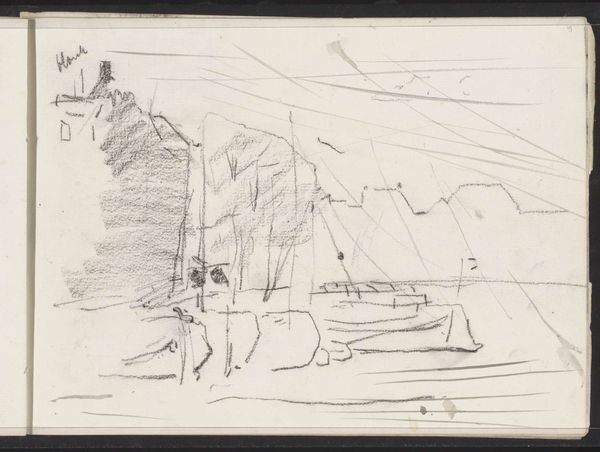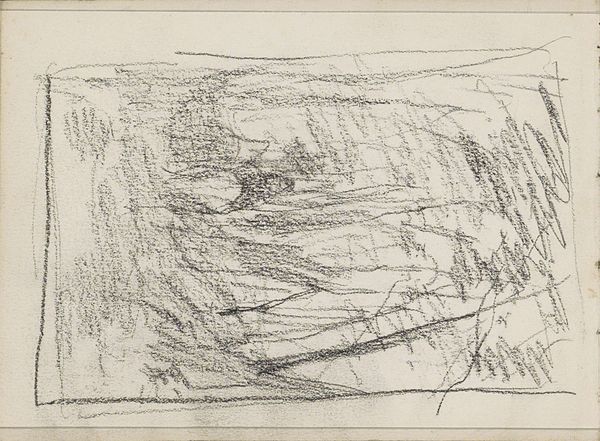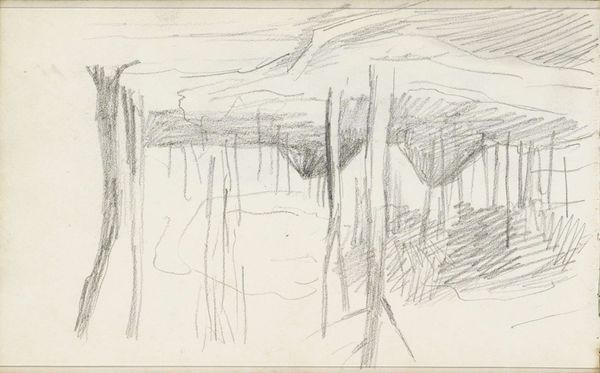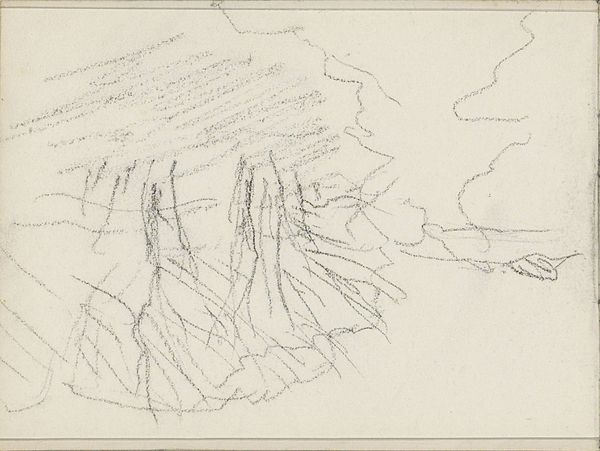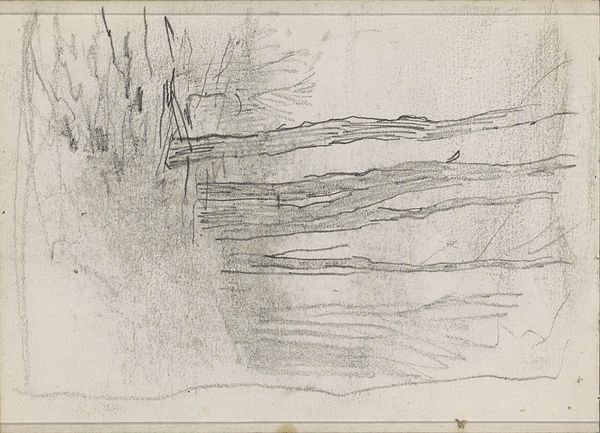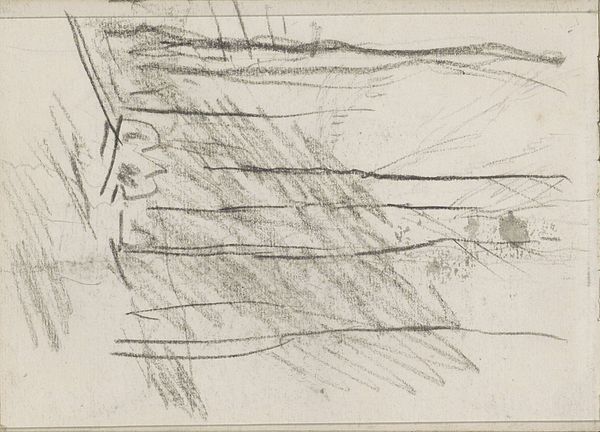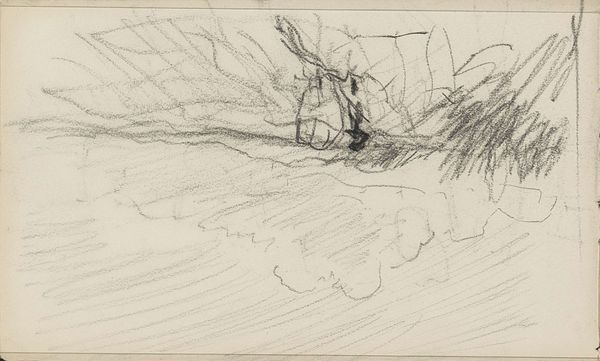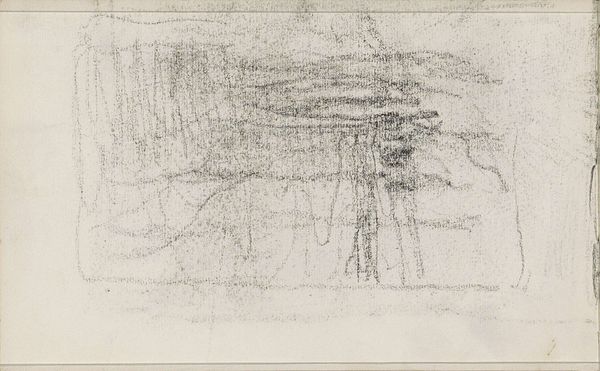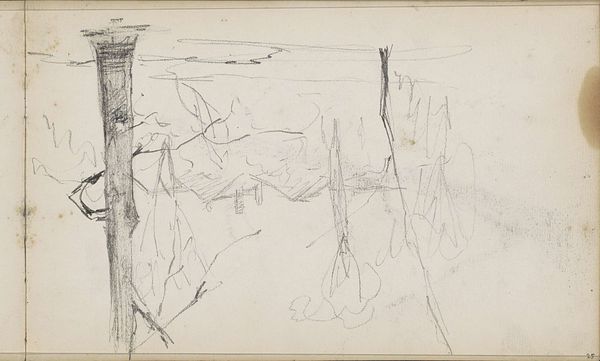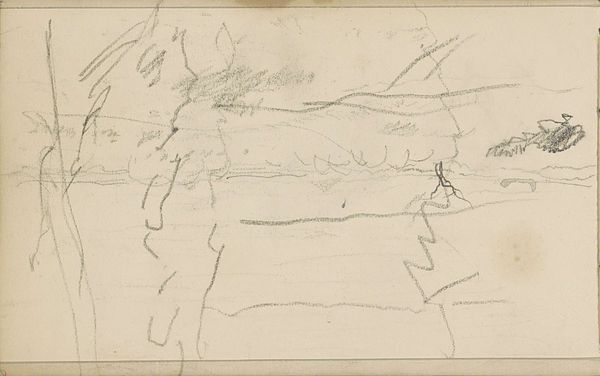
drawing, paper, pencil
#
drawing
#
landscape
#
paper
#
pencil
#
realism
Copyright: Rijks Museum: Open Domain
Editor: Anton Mauve’s "Dorpsgezicht, mogelijk Laren," a pencil drawing from around 1886-1888, has this understated, almost melancholy feel to it. The landscape seems simplified, almost dreamlike. What do you see in this piece, in terms of what it evokes? Curator: The sketchiness itself becomes symbolic. It hints at fleeting moments, memories not fully formed. Note the horizon line heavily laden, yet light. A village portrayed with simplicity, barely tethered to earth by a scant material. This can symbolize our tenuous relationship with permanence, with "home," as it were. Does it suggest a universal sense of placelessness in the wake of modernization? Editor: That’s a great point. The village *could* be anywhere, really. But does that universal feeling diminish its impact at all? I mean, wouldn’t a stronger sense of place make it more… relatable? Curator: I think the lack of specificity *enhances* the symbolism. It isn't *just* Laren; it is *any* village succumbing to change, the individual houses merging into the long horizontal. Mauve seems to ask if these individual dwellings will eventually fade away into progress and urbanization, losing their cultural imprint. And isn't the true universality found in recognizing the common thread, not just a familiar locality? Editor: I never thought about it that way. So, by being nonspecific, it actually becomes more powerful? Curator: Precisely! And this sketchiness reminds us that collective memory, much like sketches, contains only traces of things; it suggests fragility. Perhaps he feared his way of life would similarly disappear. Editor: That adds so much depth! Now I see the inherent symbolism. Thanks. Curator: A pleasure! These glimpses into past perceptions invite us to contemplate our own present.
Comments
No comments
Be the first to comment and join the conversation on the ultimate creative platform.
